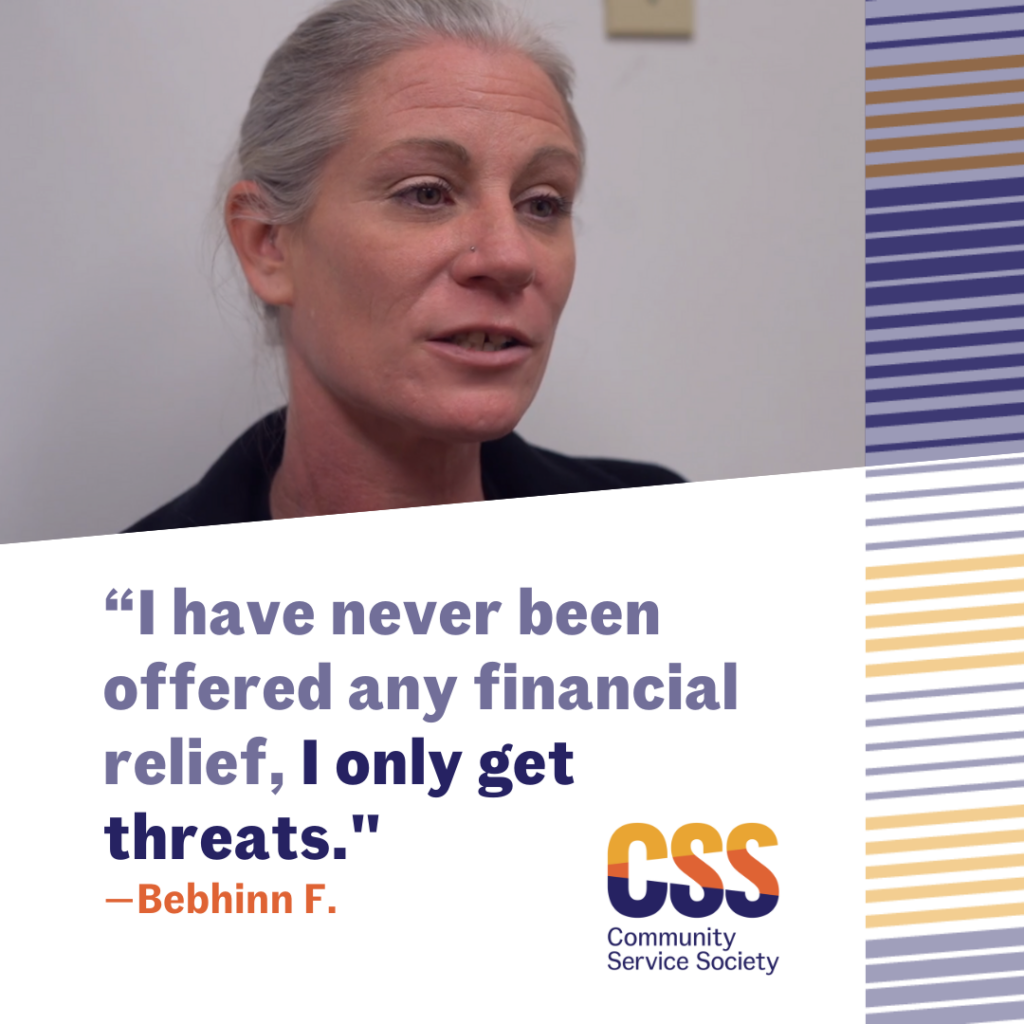CSS Brief Highlights Need for Fairer Financial Assistance in New York Hospitals
Posted April, 19 2023 by Amanda Dunker
After she rushed to a hospital-based urgent care facility with a painful tooth, Bebhinn was asked to pay $600 in fees and copays. Her Medicare did not cover dental, so she was denied care and sent to the emergency room where she waited for six hours to be seen.
After she got the care she needed, she was hit with a large ER bill. Instead of being offered financial assistance, Bebhinn now faces a barrage of calls from debt collectors.
In 2022, CSS found that New York’s nonprofit hospitals had sued more than 54,000 patients in just five years—many of whom should have been eligible for financial assistance. The analysis revealed that hospitals disproportionately sue patients who live in low-income zip codes or zip codes where the residents are mostly people of color.
The current HFAL requires all New York hospitals with funding from the State’s $1.1 billion Indigent Care Pool (ICP) to have a financial assistance application and policy. However, continued lawsuits and aggressive debt collection action against patients show that those eligible for financial assistance were not screened, were unable to complete the application process, or were improperly rejected.
New York’s health care landscape evolved significantly since HFAL was enacted in 2006, rendering the current law outdated and ineffective. For example, the current law only provides very modest discounts to patients with limited means (under 300 percent of the federal poverty level). By contrast, the Affordable Care Act offers financial assistance to people up to 600 percent of the federal poverty level. In addition, the HFAL requires that only the hospital, and not its providers, offer discounts to eligible patients. As private practices increasingly take over critical hospital functions like emergency rooms, uninsured patients increasingly receive undiscounted bills they are unable to pay.
A new brief by CSS, “An Ounce of Prevention: Reforming the Hospital Financial Assistance Law Could Save Pounds of Patient Debt,” outlines actionable steps to support low-income patients more effectively by updating HFAL. The authors of the brief recommend:
- Requiring a common financial assistance policy across all New York hospitals and providers;
- Aligning the current law with other health care programs by raising its eligibility level;
- Making discounts greater and easier to access; and
- Protecting patients from lawsuits and other aggressive collections actions while they are being screened for financial assistance.
The Ounce of Prevention Act (S1366/A6027), sponsored by State Senator Gustavo Rivera and Assemblymember Amy Paulin, would enact these critical reforms. If the law is passed, New York would follow the lead of several other states, including New Jersey and Illinois, which have recently enacted fairer financial assistance laws. Learn more about the Ounce of Prevention Act here.

